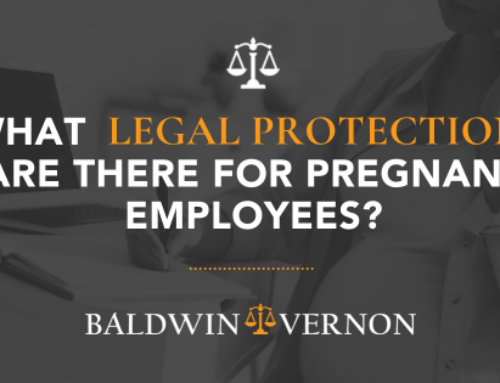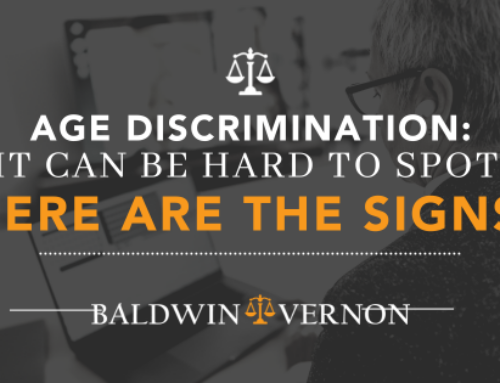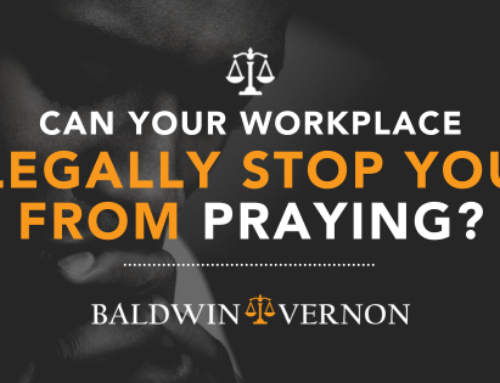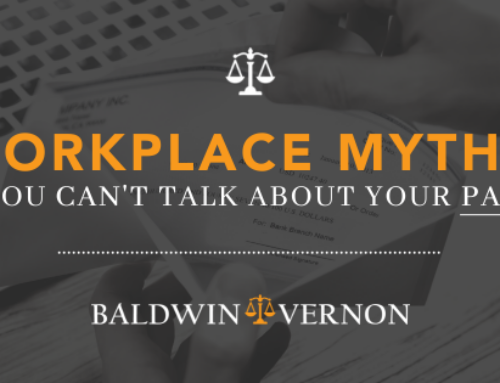Disability discrimination occurs when an employee or applicant is treated unfavorably (because he or she has a disability) by an employer or other entity covered by the Americans with Disabilities Act, the Rehabilitation Act or the Missouri Human Rights Act.
According to the U.S. Equal Employment Opportunity Commission, in order to be protected by the law, an individual must be qualified for the job and show that he or she has a disability in one of the following ways:
- if the individual has a physical or mental condition that substantially limits a major activity such as walking, talking, seeing, hearing or learning
- if the individual has a history of a disability such as cancer that is in remission
- if an individual is “believed to have a physical or mental impairment that is not transitory (lasting or expected to last six months or less) and minor (even if he or she does not have such an impairment)”
An employer is prohibited by law to
- ask a job applicant to answer medical questions or take a medical exam before offering a job
- ask job applicants if they have a disability or inquire about an apparent disability
- treat an applicant or employee less favorably because he or she has a history of a disability, such as cancer that is in remission
- treat an applicant or employee less favorably because she or he is “believed to have a physical or mental impairment that is not transitory (lasting or expected to last six months or less) and minor (even if he or she does not have such an impairment)”
- discriminate when it comes to any aspect of employment, including hiring and layoffs, firing, payment, job assignments and duties, promotions, training, fringe benefits, and any other term or condition of employment
- discriminate based on an applicant’s or employee’s relationship with a person with a disability, such as a spouse (even if the employee or applicant is not disabled)
“It is extremely important to note that the employee often does not consider himself or herself to be disabled because the job duties are being performed successfully,” states Eric Vernon, attorney at Baldwin & Vernon. “Baldwin & Vernon has represented clients who were treated differently because they were amputees, cancer survivors, blind in one eye, or suffered from conditions such as PTSD or fibromyalgia, among others. These conditions affected the client’s health, but not the job and the issue was the perception of the employer.”
An employer is allowed to
- ask job applicants whether they can perform the job duties and how they would perform the job, with or without a reasonable accommodation
- condition the job offer on the applicant answering medical questions or passing a medical exam, but only if all new employees in the same type of job have to go through the same process (only after a job is offered to an applicant)
Reasonable accommodation
An employer or other entity is required by law to provide reasonable accommodation to an employee or job applicant with a disability.
A reasonable accommodation is defined by the EEOC as “any change in the work environment (or in the way things are usually done) to help a person with a disability apply for a job, perform the duties of a job, or enjoy the benefits and privileges of employment.”
Examples of reasonable accommodation are:
- making the workplace accessible for wheelchair users
- providing a reader or interpreter for someone who is blind or hearing impaired
Undue hardship
An employer doesn’t have to provide an accommodation if doing so would cause “undue hardship” to the employer.
Undue hardship means that the accommodation would be too difficult or too expensive to provide, due to the employer’s size, financial resources, or needs of the business. An employer isn’t required by law to provide the exact accommodation the individual asks for.
Harassment
The EEOC states that it is illegal to harass an applicant or employee because he or she has a disability, had a disability in the past, or is “believed to have a physical or mental impairment that is not transitory (lasting or expected to last six months or less) and minor (even if he or she does not have such an impairment).”
Harassment includes offensive remarks about a person’s disability. Harassment becomes illegal when it is so frequent or severe that it creates a hostile work environment or when it results in the victim being fired or demoted.
The harasser can be a supervisor, a co-worker, a client or a customer.
Consult a lawyer if you feel that you have been harassed or treated unfairly due to a disability.
Find more information about the Americans with Disabilities Act here and the Rehabilitation Act here.







